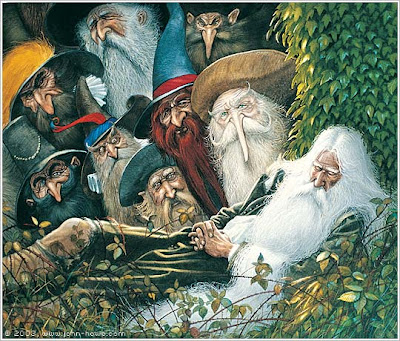My university study proper resumed today with the first
classes of my literature unit (Imagining America, led by Dr David Kelly with
whom I’ve studied previously – his Literature and Cinema course on book to film
adaptations). Typically (for me) I
mossed the first class, a one hour lecture, thanks to a meeting running over at
work. I suppose I can’t complain too
much. NDS is allowing me the flexibility
I need to study at all. But I’ll try
hard in the future not to miss classes.
I did make it to the first of our weekly two-hour seminars; this week an
introduction to the course as a whole. I
volunteered to take the first week’s seminar topic (next Tuesday) on Walt Whitman
with a particular focus on The Song of
Myself. I was the only person to put
my hand up for Whitman, which I was rather pleased about. I’m not keen on undergraduate group
work. To be honest, it’s because every
time it’s foisted upon me my mark drops a notch or two.
This afternoon we discussed the idea of America ,
considered within the context of American Exceptionalism and ‘the American
experiment’ in nationhood and nation-building.
There were divergent views on the extent to which the exceptionalism
notion still features in contemporary political philosophy (as distinct from
current political discourse). I tended
towards that remains live within both philosophy and discourse (thinking of
Bush and the Neo-Cons not so long ago or the Tea Party today). A couple of my fellow students argued a
similar perspective (with a sounder base in fact than I offered). Dr Kelly saw it as less real in the current
political philosophies at play in modern America
although still a strong driver in the public discourse of candidates competing
for office. He argued (I think) that we’re
in a different phase, beyond the triumphant and imperialist march of the great
20th Century powerhouse, although the USA remains a great power but
the hegemony of the white, Anglo-Saxon Protestant elite that emerged from the ‘founding
fathers’ is waning (Dr Kelly suggests) as the nation fragments, diversifies and
re-considers internally its foundation myths while, economically and
culturally, the idea of American hegemony in a globalised economy as reached
its limits.
 |
| Rip Van Winkle by John Howe |
We started our literary examination of an imagined America
with Washington Irving’s Rip Van Winkle. I read the story as a child. The only part that stuck with me was the part
about the man who falls asleep for 20 years.
I remember it as a modern fairy tale – Dr Kelly used the term ‘tall tale’
which has more meaning in the American context; that’s the tradition Faulkner
was invoking with As I Lay Dying. Although
I read the story before the class and was able to offer some analysis and
interpretation of it – particularly around the portrayal of women, the soft
spot it exhibits for the laconic, ne’er do well male hero, the reassurance of continuity
and progress around or across the bifurcating disruption of the long sleep,
among others - I was struck by the differences between Dr K’s much closer, more
analytical reading of the text than I could manage. I realise, of course, that he’s a full time
academic at a major institution and that American literature is one of his
areas of interest. Nevertheless, I
should have been able to see more than I did.
My reading must become more analytical.
I need to become more rigorous in asking myself what’s going on and
seeing the answers present in the text.
So I didn’t adequately describe the contrast in women’s roles before and
after the big sleep (Dame Van Winkle may be a shrew but she has agency; Rip Van
Winkle’s daughter is domesticated and nurtures the next male generation). I didn’t see the satire on the monarchy or on
the transfer of power from King George to George Washington (asking the
question, to what extent has circumstances truly changed / improved for
ordinary people?).
The point is this: I must sharpen my powers of
observation. I need to see better what
it is that’s going on inside a text, not simply what’s happening with or to the
story or its characters. I’m looking
forward to the rest of the semester. I may
even learn something.